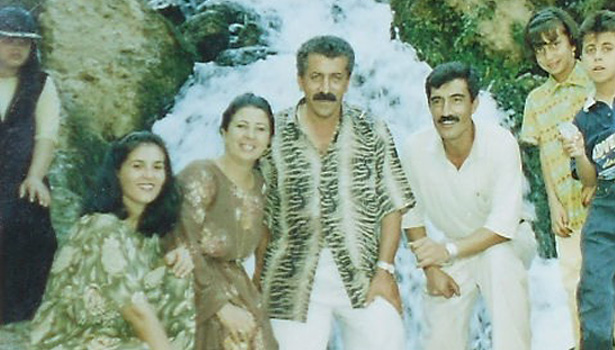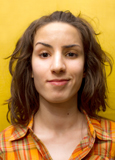Remembering: The Day Bero Learned to be a Kurd
Jul 17, 2010

The day Bero Abdullah left Erbil she was sure she wouldn't come back. The city was almost empty. Everyone had fled to surrounding villages because they feared an attack by the Iraqi Army.
The residents of Erbil - known in Kurdish as Hawler - remember the start of the second Iraq invasion in April 2003 because of their constant fear that Saddam Hussein would carry out attacks with chemical weapons as he had done in the town of Halabja in 1988.
"I was coming back home and, on the way, my friends and I were writing memories for each other because we were sure that we wouldn't see each other again," Bero said.
Bero, 21, is from Rawandz but now lives with her family in Erbil and attends Salahaddin University.
Just before the second Iraq war started, Bero's family shared a house, food and even clothing among 11 people. There were five from her family and six people from her uncle's family all living together. At the time, Bero was 15 years old.
She came home one day and all the family's things were packed. Her father insisted that they go to their hometown of Rawandz.
"He was sure that Rawandz was the best place to keep us safe from Saddam's threat," Bero said.
That same day, the Abdullahs' neighbor came to their house and asked for help. Her husband was living abroad in London, and she was left alone with her five children in Kurdistan.
"She came to our house and begged my father to take them with us," Bero said. "My father was so sympathetic with her and he couldn't refuse her request."
The tiny car was packed to overflowing but they all made the 110-kilometer trip to Rawandz safely. Once there, they all shared one house in Rawandz and spent a few months living there.
Bero's mother Swdad Ahmed was very worried about her parents and siblings. "I knew they were not in Erbil but for a long time I had no news about them, I didn't know how to reach them or check on them," Swdad said. However, Bero's mother was the source of comfort and security for her husband and children; somehow she managed to hide those feelings of anxiety and sadness from them.
The condition in Rawandz was not better than the rest of Erbil. There was no electricity and people were fearful of the news through radio.
For Bero's father the case was different. Abdullah Latif had served in the Peshmerga, a group of armed Kurdish fighters, and fought against Saddam Hussein's regime in the Kurdish mountains for many years. Latif handled the hardship of that time with a Peshmerga spirit. "I often recall the stories about me while living in the mountains during 1990s and my experiences with my fellow Peshmergas. I wanted to teach my children the purpose of hardship and the meaning of courage," he said.
"During this month, I really learned what it means to be a Kurd," Bero Abdullah remembered. "Even though we were hiding from Saddam's threat, I was still proud."
Bero said her father's pain alongside her mother's patience encouraged her in the tough times until they were able to return to Erbil. Through the months, her cousin made her laugh while the innocence of her younger sister and brothers inspired her. But, it was the day her father shared his stories with her that shaped Bero's sense of pride in her Kurdish heritage.
"At that day, I promised to fight for freedom. I promised to work hard to achieve freedom for Kurdistan," she said with tears in her eyes.
Above Photo: Bero Abdullah's family in Bekhal, Iraq in March of 2003. (Photo courtesy Bero Abdullah)

Add your comment